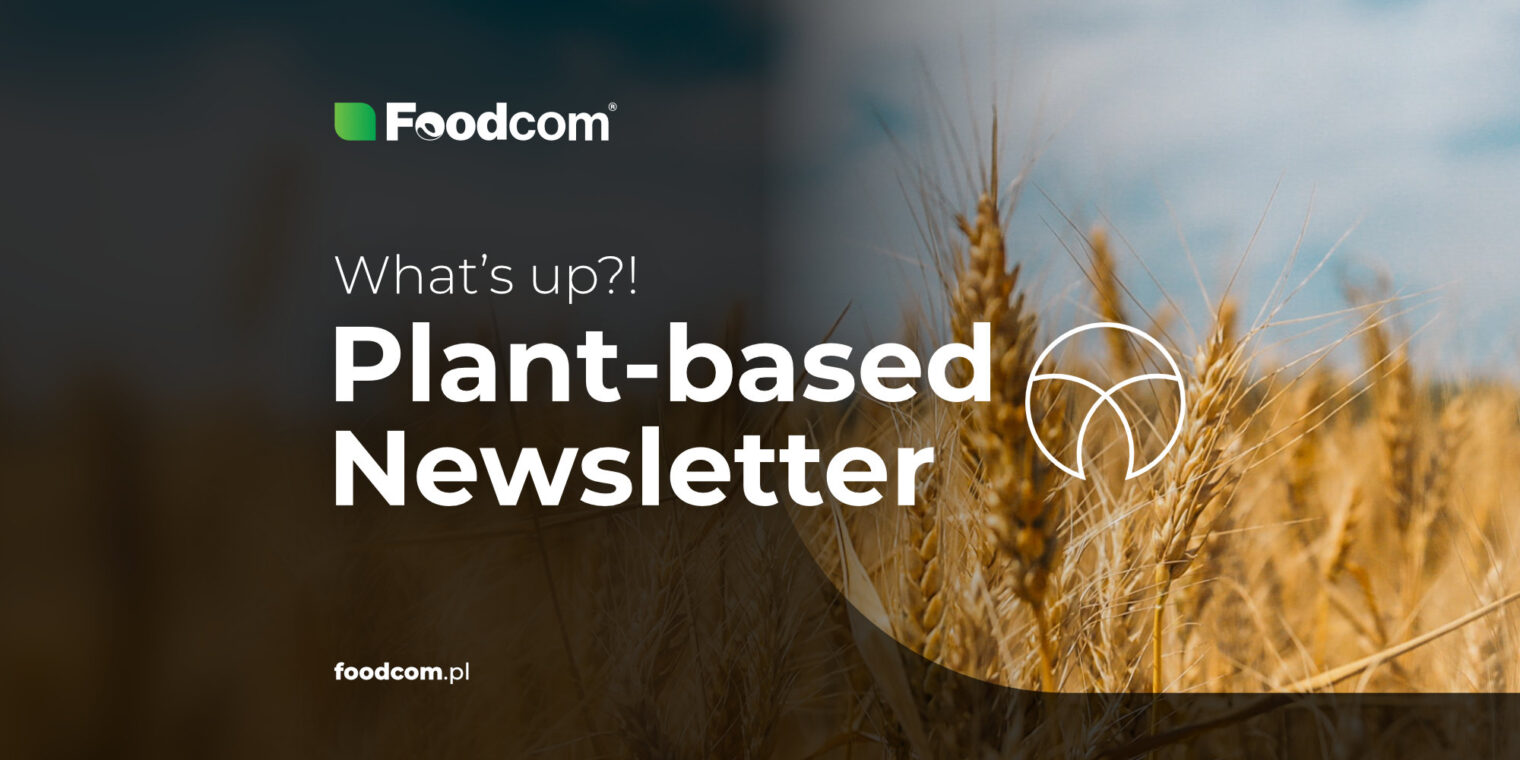There is a lot going on in the market for plant-based commodities, and the situation sometimes changes within minutes. So, a lot must have happened since we ‘see’ each other once every two weeks, right? It is difficult to make a general statement about the market situation because the situation of the individual products differs greatly from one another. In this regard, we have no other choice but to invite you to read a detailed description of the situation of individual commodities. Interested? Certainly, so read on!
Native Starches
Orders from paper manufacturers continue to be important to the Native Starch market. We see quite a few requests from their side, it is obvious that not all companies have switched to remote work… Currently, frequent inquiries for smaller quantities predominate. There are also quite a few inquiries from the food industry for Native Potato Starch and Native Corn Starch. Sauce manufacturers are leading the way, and smaller end users of Native Starches are signing contracts from week to week. At the same time, we are receiving inquiries about Q2 and Q3 prices. Native Wheat Starch continues to be the cheapest. The availability of Native Corn Starch and Native Wheat Starch on the market is satisfactory, and there are also large quantities of raw materials available from outside Europe. Native Potato Starch is still in short supply, but it has long been known that this will be the case at least until the next harvest.
Modified Starches
What can be seen at first glance when it comes to the Modified Starch market is the very high popularity of E1442 starch. Admittedly, it is not easy to get it in the market these days, but skillful traders are successfully making new contracts. Insufficient availability is characteristic of all Modified Starches today. In Central Europe, many people ask for gluten-free starch. Modified Tapioca Starch is becoming increasingly popular. Demand for Modified Waxy Corn Starch is also increasing, and there are requests for Q2 and Q3. However, some are holding back on purchases for the moment, waiting for more satisfactory prices.
Sweeteners
Ordering Dextrose from China primarily involves significant delays. For this reason, the European one enjoys great popularity despite its higher price. Presently, there are no signs that the price of Dextrose will decrease in the near future. There are many inquiries for Dextrose from feed manufacturers. Syrups are also in high demand, with Glucose Syrup clearly in the lead. The inquiries are mainly from smaller manufacturers. There are also many inquiries for Maltitol, especially from manufacturers in the food industry.
Proteins
We have received many inquiries for Vital Wheat Gluten, mainly contracts are being sought for March-October, Q3 and Q4, there are also some for all of 2024. The price is stabilizing, the most repeated question is ‘where has the hydrolyzed variety gone?’. Corn Gluten Meal has been seeing lower and lower prices and limited demand for some time. There are many signs that the raw material situation has stabilized. Aqua feed manufacturers and others have started buying, and pet food will soon be soaring again. Potato Protein is in demand for pet food, especially from Asia. Despite the recent low crop and the prediction of an even weaker next one, demand is not yet as high as producers had expected. Recently, inquiries have been received for Potato Protein, the price of which is sure to rise as there will be no further harvest until September.
Soy Commodities
There continues to be strong demand for Soy Lecithin. The non-GMO variety in particular is in high demand. In the case of Soy Protein Isolate, alongside raw materials from China, we are seeing a significant increase in interest, particularly in varieties with a high protein content.
What else?
Europe
Belgian farmers expressed their ‘slight’ discontent
Nearly 3 000 tractors drove through the streets of Brussels in early March. They carried farmers who had come to the capital to protest the government’s policy to reduce fertilizer emissions. The protesters pointed out that the agricultural sector is constantly changing and adapting to the challenges posed by the struggle for a better future for the planet. At the same time, they argue that the nitrogen agreement in its current form will have devastating socio-economic consequences. In their view, it will put more of a burden on the agricultural sector than on the industrial sector, which naturally angers them.
A smaller beet acreage in France makes Tereos think
One of the world’s largest sugar producers has decided to reorganize the business as it receives fewer beets from farmers. Tereos is expected to receive up to 10% less beets this season, as the area under sugar beets in France has fallen to a 14-year low. One of the main reasons for the negative changes is the restrictions on pesticide use and farmers’ concerns about how these regulations will affect yields (we have written about this several times before). So, the saga continues…
Another European city, another wave of protests
Some 10,000 Dutch farmers have protested in The Hague against the government’s policy on nitrogen emissions. The protesters are certain that continuing the current emissions policy will have disastrous consequences for agriculture and food production. Some are even convinced that the government does not care at all about the state of the environment, and that its only goal is to deprive farmers of their land. The reason for the unrest is the government’s ambitious goal of halving the country’s nitrogen emissions by 2030.
The Americas
The tragic drought in Argentina will have a significant impact on grain production
Many had hoped that South American grain production would recover this year after a difficult last season, but all indications are that it will be worse. Last year’s drought hit crops in Brazil and Argentina hard. According to experts, the current situation could lead to the worst losses ever suffered by Argentine agriculture. So far, there are no signs of improvement as short-term forecasts continue to predict dry and hot weather conditions.
Changes in the structure of U.S. grain exports
U.S. soybean exports reached a record high in early 2023, while corn exports declined due to last year’s huge corn crop in Brazil. The opening of China at the turn of the year was essential for the increase in soybean exports, especially since exports of this grain to other destinations have declined noticeably.
Brazilian government announces expansion of GM wheat testing
Brazil’s agricultural research agency plans to expand testing of a drought-tolerant, genetically modified wheat variety. The background to this is the country’s desire to become self-sufficient in staple crops and, in the long term, a major exporter. The fact that this is happening now is no coincidence: permission to grow and sell GM wheat in Brazil was granted just a few days ago. Genetically modified, more adaptable plants are clearly the wheat to go forward for Brazil.
Asia & Oceania
Indonesia cuts palm oil exports, Malaysia gains
Indonesia has announced the suspension of some palm oil export licenses. The aim is to secure domestic supplies in the face of rising edible oil prices ahead of the upcoming Islamic holidays. As a result, more buyers are turning to palm oil from Malaysia. Following the unrest, palm oil stocks in Malaysia are dwindling. Another factor is the heavy rains that have limited production growth.
The torrential rains in Australia have finally made a positive difference
Current forecasts indicate that Australia’s agricultural exports will reach a record high this season. One of the main supporting factors is the heavy rains that have hit the country. Australian winter grain production, driven primarily by wheat, is expected to reach a new record of 67.3 million tons in 2022-23. The value of agricultural exports alone is expected to reach $75 billion in 2022-23. Those are nice numbers, there’s no denying that.
Malaysian palm oil and rubber producers oppose EU policy
Malaysian palm oil and rubber producers on Wednesday submitted a petition to the European Union opposing legal solutions to restrict imports of commodities whose production risks deforestation. Representatives of the Malaysian industry called the regulations ‘unilateral and unrealistic’ and stressed that they will make it more difficult for small farmers in particular to access the European market. They also believe they are extremely unjustified, considering how much smaller Malaysian farmers have achieved in terms of forest protection and sustainable production. Some oil should definitely be poured into these troubled waters of cooperation with the EU.








